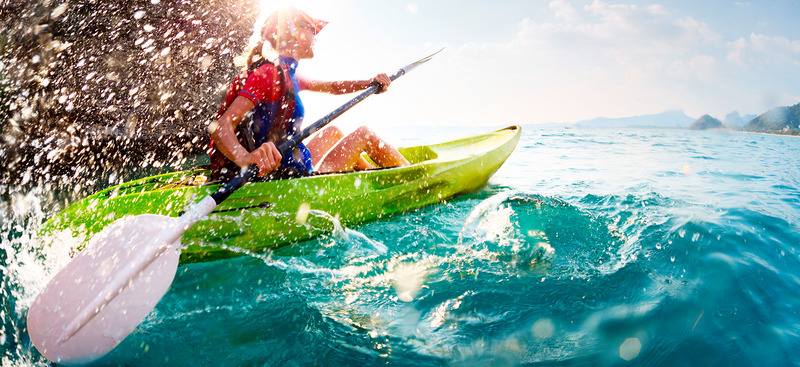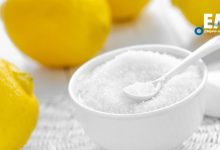In the serene realm of kayaking, where every stroke propels you further into the tranquil embrace of nature, the importance of proper nutrition cannot be overstated. Whether you’re a recreational paddler or a competitive racer, fueling your body with the right nutrients is essential for optimizing performance, enhancing endurance, and sustaining stamina on the water. In this comprehensive guide, we’ll delve into the depths of kayak nutrition, exploring strategies to nourish your body effectively for peak paddling prowess.
Understanding the Basics of Kayak Nutrition
Before we dive into the specifics, let’s grasp the fundamental principles of kayak nutrition. Kayak nutrition encompasses the dietary practices tailored to meet the unique demands of paddling. It revolves around striking a balance among carbohydrates, proteins, fats, vitamins, and minerals to support sustained energy, muscle function, and overall health. While the exact nutrient requirements may vary depending on factors such as intensity, duration, and environmental conditions, a well-rounded diet forms the cornerstone of kayak nutrition.
Carbohydrates:
Carbohydrates serve as the primary fuel source for kayakers, supplying readily available energy to power through paddling sessions. Opt for complex carbohydrates such as whole grains, fruits, and vegetables, which provide sustained energy release and essential nutrients.
Proteins:
Proteins play a crucial role in muscle repair and recovery, making them vital for kayakers aiming to maintain muscle mass and optimize performance. Incorporate lean sources of protein such as poultry, fish, beans, and legumes into your diet to support muscle health and endurance.
Fats:
While often maligned, fats are essential for long-lasting energy and insulation against the elements. Focus on incorporating healthy fats like those found in avocados, nuts, seeds, and fatty fish to support cardiovascular health and provide sustained energy during prolonged paddling sessions.
Vitamins and Minerals:
Vitamins and minerals are integral for various physiological functions, including muscle contraction, hydration, and immune function. Ensure adequate intake of micronutrients by consuming a diverse array of fruits, vegetables, whole grains, and lean proteins to support overall health and performance.
Preparing Your Body for the Paddle: Pre-Kayaking Nutrition
Before embarking on your aquatic adventure, it’s essential to fuel your body adequately for the journey ahead. Pre-kayaking nutrition sets the stage for optimal performance and endurance on the water. Focus on consuming a balanced meal containing carbohydrates, proteins, and fats approximately 2-3 hours before your paddle to ensure sustained energy release and muscle fueling. Incorporate foods such as whole grain toast with almond butter, Greek yogurt with berries, or a turkey and avocado wrap to provide a mix of macronutrients for sustained energy and satiety.
In addition to pre-kayaking meals, hydration plays a pivotal role in preparing your body for the paddle. Aim to drink water or electrolyte-rich beverages in the hours leading up to your best kayaking session to ensure adequate hydration and electrolyte balance. Avoiding caffeinated or sugary beverages, which can lead to dehydration and energy crashes, is paramount. Remember, proper hydration begins before you hit the water, so prioritize fluid intake as part of your pre-kayaking ritual.
During the Paddle: Nutrition Strategies for Endurance
As you glide across the shimmering surface of the water, maintaining energy levels and hydration becomes paramount for sustained performance. During the paddle, focus on consuming easily digestible snacks and staying hydrated to fuel your muscles and fend off fatigue.
Hydration Techniques:
Hydration is key to maintaining performance and preventing dehydration-induced fatigue while kayaking. Drink small, frequent sips of water or electrolyte beverages throughout your paddle to stay hydrated without overwhelming your stomach. Consider investing in a hydration pack or water bottle holder for convenient access to fluids while on the water.
Portable Snacks for Sustained Energy:
When it comes to on-the-go nutrition, convenience is key. Pack lightweight, nutrient-dense snacks that are easy to consume while paddling. Trail mix, energy bars, dried fruit, and nut butter packets are excellent options for quick energy and sustained endurance. Experiment with different snacks to find what works best for your preferences and digestive comfort.
Electrolyte Replacement:
Electrolytes play a vital role in fluid balance, muscle function, and hydration regulation during prolonged exercise. Replenish electrolytes lost through sweat by consuming electrolyte-rich snacks or beverages during your paddle. Coconut water, sports drinks, and electrolyte tablets are effective options for maintaining electrolyte balance and performance during kayaking sessions.
Post-Paddle Recovery: Refueling and Repair
As you glide back to shore, basking in the afterglow of a satisfying paddle, your journey doesn’t end at the water’s edge. Post-paddle nutrition is essential for replenishing depleted energy stores, promoting muscle recovery, and supporting overall recovery and repair processes.
Importance of Post-Kayaking Nutrition:
After a demanding kayaking session, your body craves replenishment and repair. Post-paddle nutrition plays a crucial role in refueling glycogen stores, repairing muscle tissue, and restoring hydration levels depleted during exercise. Prioritize consuming a balanced meal or snack containing carbohydrates, proteins, and fats within 30-60 minutes of concluding your paddle to jumpstart the recovery process and maximize benefits.
Foods and Beverages for Recovery:
Opt for nutrient-rich foods and beverages that provide a blend of carbohydrates, proteins, and fats to support post-paddle recovery. Consider options such as a turkey and vegetable quinoa bowl, a smoothie with Greek yogurt and berries, or a salmon salad with avocado to replenish energy stores and promote muscle repair. Additionally, hydrate with water or electrolyte-rich beverages to restore fluid balance and support recovery processes.
Stretching and Restorative Practices:
In addition to nutrition, incorporating stretching and restorative practices into your post-paddle routine can enhance recovery and prevent muscle stiffness and soreness. Allocate time for gentle stretching or yoga poses targeting the muscles used during kayaking, such as the shoulders, back, and core, to improve flexibility, reduce tension, and promote relaxation. Prioritize self-care and recovery to ensure your body remains primed for future paddling adventures.
By prioritizing post-paddle nutrition and recovery practices, you can optimize recovery, minimize fatigue, and prepare your body for future kayaking endeavors.
Special Considerations: Nutrition for Kayak Racing
For competitive kayakers seeking to push their limits and test their prowess on the water, specialized nutrition strategies are paramount for maximizing performance and achieving peak results.
Unique Nutritional Needs for Kayak Racing:
Kayak racing places heightened demands on the body, requiring precise fueling and hydration strategies to sustain intense efforts over prolonged durations. Tailor your nutrition plan to meet the specific demands of kayak racing, focusing on carbohydrate loading, hydration optimization, and electrolyte replacement to fuel performance and maintain endurance throughout the race.
Strategies for Optimizing Performance:
Prioritize carbohydrate-rich meals and snacks in the days leading up to a kayak race to maximize glycogen stores and provide sustained energy for competition day. Experiment with hydration strategies during training to determine fluid needs and develop a personalized hydration plan for race day. Additionally, familiarize yourself with the course layout, environmental conditions, and race duration to adjust your nutrition and pacing strategies accordingly.
Recovery Techniques for Post-Race Replenishment:
After crossing the finish line, shift your focus to post-race recovery to facilitate muscle repair, glycogen replenishment, and hydration restoration. Consume a balanced meal or snack containing carbohydrates and proteins within the post-race recovery window to kickstart the recovery process and promote optimal recovery. Embrace restorative practices such as foam rolling, gentle stretching, and hydration to support muscle recovery and reduce post-race fatigue.
Addressing Common Concerns and Myths
In the realm of kayak nutrition, misconceptions and myths abound, often clouding the path to optimal performance and health. Let’s debunk some common concerns and myths surrounding kayak nutrition, providing evidence-based insights to steer you in the right direction.
Carbohydrates are Bad for Weight Loss
Fact: Carbohydrates are a primary source of energy for kayakers and play a crucial role in supporting endurance and performance on the water. While it’s essential to prioritize complex carbohydrates and portion control, eliminating carbohydrates entirely can impair performance and hinder weight loss efforts in the long run.
Protein is Only Necessary for Bodybuilders
Fact: Protein is essential for muscle repair, recovery, and maintenance, making it a vital nutrient for kayakers of all levels. Incorporating lean sources of protein into your diet can support muscle health, optimize performance, and enhance overall recovery and repair processes.
Hydration Isn’t Important During Cooler Weather
Fact: Regardless of the weather conditions, hydration remains a critical component of kayak nutrition. Dehydration can occur even in cooler temperatures due to increased respiratory water loss and sweating under layers of clothing. Prioritize hydration by drinking water or electrolyte beverages regularly during your paddle to maintain performance and prevent dehydration-related issues.
Fat Should Be Avoided in Kayak Nutrition
Fact: While excess saturated and trans fats should be limited for optimal health, healthy fats play a vital role in supporting energy production, insulation, and overall health for kayakers. Incorporate sources of unsaturated fats such as avocados, nuts, seeds, and fatty fish into your diet to reap the benefits of healthy fats for sustained energy and cardiovascular health.
Supplements Are Necessary for Peak Performance
Fact: While certain supplements may complement a well-rounded diet and training regimen, they are not a substitute for proper nutrition. Focus on meeting your nutrient needs through whole foods and balanced meals before considering supplements. Consult with a healthcare professional or registered dietitian before incorporating supplements into your kayak nutrition plan to ensure safety and efficacy.
By dispelling common myths and misconceptions, you can make informed decisions and optimize your kayak nutrition for peak performance and health.
Incorporating Kayak Nutrition into Your Lifestyle
Kayak nutrition isn’t just about what you consume before, during, and after your paddling sessions it’s a holistic approach to nourishing your body for optimal health and performance both on and off the water. Here are some tips for integrating kayak nutrition principles into your lifestyle seamlessly.
Meal Planning Strategies:
Simplify your kayak nutrition by incorporating meal planning and preparation into your routine. Dedicate time each week to plan and prepare balanced meals and snacks tailored to your paddling schedule and nutritional needs. Batch cook staples such as grains, proteins, and vegetables to streamline mealtime and ensure you have nourishing options readily available.
Portable Snacks and Meals:
Stay fueled and energized on the go by stocking up on portable snacks and meals that align with kayak nutrition principles. Pack nutrient-dense options such as homemade energy bars, trail mix, fresh fruit, and pre-cut vegetables for quick and convenient fueling throughout your day. Invest in insulated lunch bags or cooler packs to keep perishable items fresh during outdoor adventures.
Consistency and Flexibility:
Consistency is key to reaping the benefits of kayak nutrition, but it’s also essential to remain flexible and adaptable to changing circumstances. Embrace variety in your diet by experimenting with different foods, flavors, and cuisines to keep meals exciting and enjoyable. Listen to your body’s hunger and satiety cues, adjusting your intake and timing of meals and snacks to meet your energy needs.
Incorporating kayak nutrition principles into your lifestyle can enhance your overall health, performance, and enjoyment both on and off the water. By prioritizing balanced nutrition and mindful eating habits, you can fuel your body for success and embark on countless paddling adventures with confidence and vitality.
The Role of Supplements in Kayak Nutrition
While a well-balanced diet should ideally provide most of the nutrients your body needs, there are instances where supplements may be beneficial for kayakers looking to optimize their nutrition and performance. Let’s explore the role of supplements in kayak nutrition and how they can complement your dietary intake.
Commonly Used Supplements:
Omega-3 Fatty Acids: Omega-3 fatty acids, found in fish oil supplements, are renowned for their anti-inflammatory properties and potential benefits for cardiovascular health and joint function. Consider incorporating omega-3 supplements into your regimen, especially if you don’t consume fatty fish regularly.
Electrolyte Supplements: Electrolyte tablets or powders can be valuable for maintaining hydration and electrolyte balance during prolonged kayaking sessions, particularly in hot or humid conditions. Look for supplements containing sodium, potassium, magnesium, and calcium to replenish electrolytes lost through sweat.
Multivitamins: While not a substitute for a nutrient-rich diet, multivitamin supplements can help fill potential nutrient gaps and ensure you’re meeting your daily vitamin and mineral requirements. Choose a high-quality multivitamin formulated specifically for athletes or active individuals to support overall health and performance.
Considerations for Supplement Use:
Quality and Purity: Opt for supplements from reputable brands that undergo third-party testing for quality, purity, and potency. Look for certifications such as NSF International, USP Verified, or Informed-Sport to ensure the safety and efficacy of the supplements you choose.
Individual Needs: Assess your unique nutrient needs, dietary habits, and training regimen before incorporating supplements into your kayak nutrition plan. Consult with a healthcare professional or registered dietitian to determine which supplements, if any, may be beneficial for you based on your specific goals and circumstances.
Dosage and Timing: Follow the recommended dosage instructions provided by the supplement manufacturer, and consider timing your supplements strategically to maximize their effectiveness. For example, omega-3 supplements may be best taken with meals to enhance absorption, while electrolyte supplements can be consumed before or during kayaking sessions to support hydration and performance.
While supplements can be valuable tools for enhancing kayak nutrition and performance, they should not be relied upon as a substitute for a balanced diet rich in whole foods. Prioritize nourishing your body with nutrient-dense foods, and use supplements as adjuncts to support your overall health and performance goals.
Conclusion
In the serene realm of kayaking, where every stroke carries you closer to the heart of nature’s beauty, proper nutrition serves as your steadfast companion, fueling your body for endurance, stamina, and adventure. By embracing the principles of kayak nutrition balancing carbohydrates, proteins, fats, vitamins, and minerals—you can optimize your performance on the water and embark on countless paddling escapades with vitality and confidence.
From pre-paddle fueling to post-paddle recovery, hydration strategies to supplementation considerations, the journey to mastering kayak nutrition is one of discovery, empowerment, and nourishment. By integrating the insights and strategies outlined in this guide into your lifestyle, you can unlock the full potential of your body and spirit, embracing the boundless wonders that await you on the water.
So, paddle forth with purpose, fueled by the wisdom of kayak nutrition and the untamed spirit of adventure. Your journey awaits—may your body be nourished, your spirit be invigorated, and your heart be forever entwined with the rhythm of the river.



